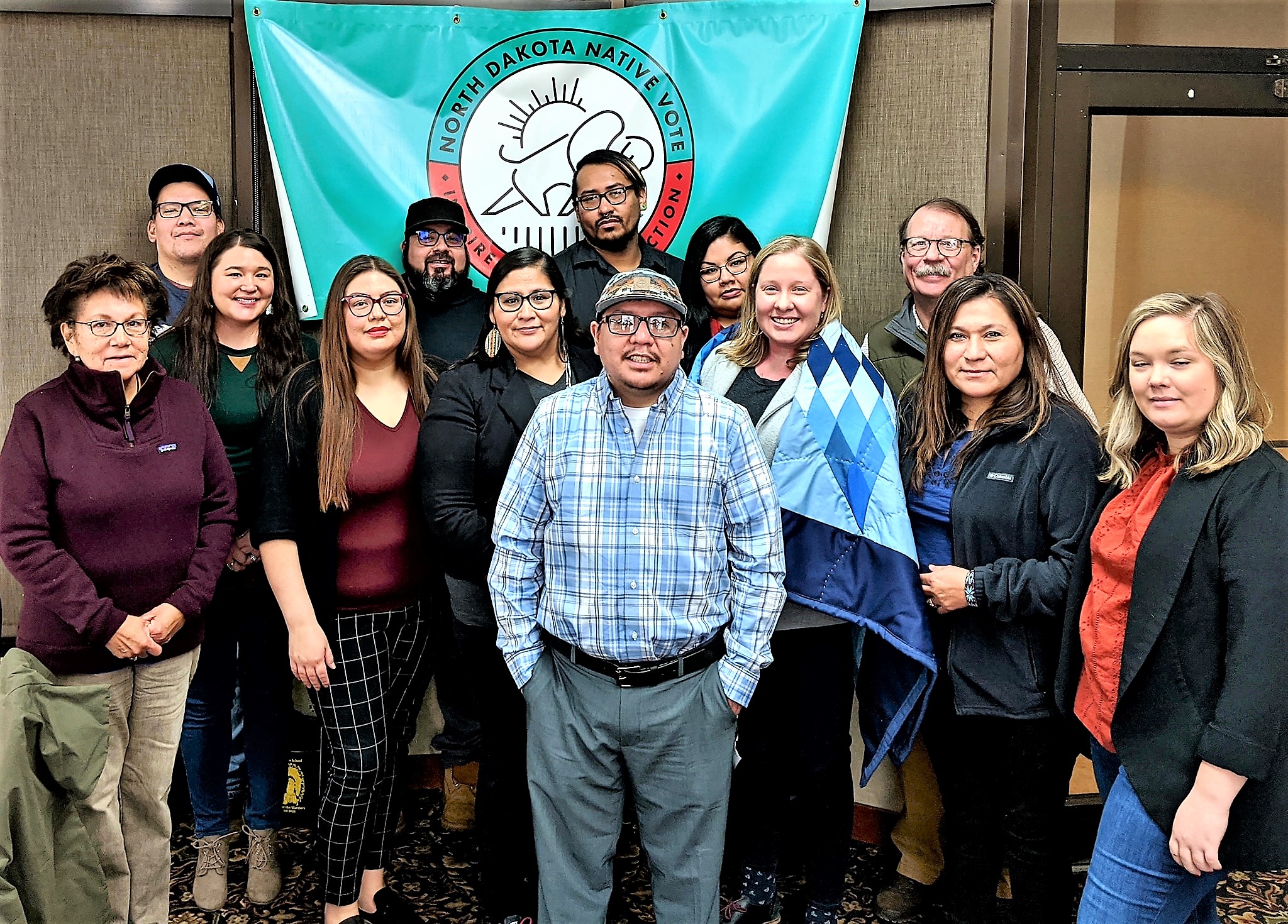ND Native Vote aims at 2020 Census

At a recent meeting, the new organization’s board of directors set priorities to counteract “ongoing colonization.” (Photo COURTESY / NDNV)
BISMARCK, N. D. – Combatting potential for under-representation of native citizens in the 2020 U.S. Census is the immediate priority for North Dakota Native Vote, the advocacy organization said in announcing its establishment here on Feb. 5.
“Native Americans were not allowed to vote in this country until 1924, even though our people have been here since time immemorial,” said Mandan Hidatsa & Arikara tribal member Lisa DeVille, board chair of NDNV.
“We experience first-hand the effects of the attempts to suppress the vote of our communities. It is up to us to take action and exercise our right to vote, participate in the 2020 Census, and be a part of the decision-making process at all levels,” she said. “North Dakota Native Vote is a resource to help us get there.”
The organization noted that native communities have “a lot at stake … because responses for the 2020 Census will primarily be internet-based. Households in tribal communities have far lower rates of home internet service or cellular data-plans,” it said.
“NDNV will be on the ground across North Dakota, educating communities about the importance of being counted and providing information on when, where, and how to be counted,” it promised.
The new organization says it is “dedicated to increasing civic engagement to develop a representative democracy for native communities both on-reservation and urban.” It was founded during the 2018 election to fight back against a voter suppression law that went into effect just weeks before Election Day.
Led by tribal members from across North Dakota, NDNV “seeks to build bridges across cultural gaps [and] works with tribal communities and allies on public policy, advocacy, the legislative and electoral process, and other issues that affect the wellbeing of tribal communities,” it says.
“The foundation of our work is to foster sustainable, positive social change in native communities through community organizing, mobilization, leadership development, education, civic engagement, and public policy advocacy.”
Board Vice Chair Wes Davis, a member of the Turtle Mountain Band of Chippewa, said the organization aims to form a more proactive electorate. “Every election cycle, we are forced to operate in reactive mode,” he complained.
Now that North Dakota Native Vote is a full-time organization, he said, “We will continue working on our issues year round, and I am excited to see what we can do when we have the opportunity to continuously educate, organize, and mobilize our communities.”
The organization is based in Mandan, N.D. It portends to “counteract the ongoing colonization of our lands, minds, and bodies by identifying systems that continue to subjugate our communities.”
On its agenda are disparities in civil rights, food systems, energy security and democracy, and climate chaos, as well as “policy that disproportionately affects our people and how we interact within and contribute to these systems.”
It “advocates for positive change on policies on voting rights, victim’s rights, upholding treaties, food and energy sovereignty, North Dakota legislative issues, and more.
(Contact Talli Nauman at talli.nauman@gmail.com)
